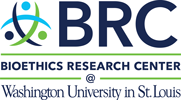Title: Subjects at High-Risk for AIDS Used in AIDS Research
Author: Anji Wall
Description: AIDS vaccine research includes subjects who are deemed high-risk but have not contracted HIV/AIDS in randomized placebo-controlled study.
Keyword(s): Fair Subjects Selection, International Research, Medically Vulnerable Persons, Post-Trial Access, Public Health Research, Randomized Controlled Trials (Placebo), Undervalued/Stigmatized Social Group
Based On: (“AIDS Vaccine Test Halted After Shots Fail,” 2007)
Case: A pharmaceutical company has developed a promising vaccine for HIV. After initial safety testing, a large international trial is initiated. The researchers recruit subjects who do not have HIV/AIDS but are at high risk for the disease (e.g. homosexual males, female sex workers). The trial is randomized, placebo-controlled trial in which 2/3 of the research subjects will receive the vaccine and 1/3 will receive an injection of saline (placebo).
- Should the IRB members be concerned about fair subject selection?
- Are the subjects in the trial likely to be vulnerable? Why or why not? What safeguards should apply?
- Do you think that this trial design (randomized, placebo controlled) is the best design: (1) scientifically? (2) ethically?
- When preliminary results of the trial come in from the first 1500 subjects, researchers found that there is no difference between the number of people who contracted HIV in the experimental and the control groups. Should they continue the trial to see if differences are found in a larger cohort?
- Does the company have any obligation to subjects following the trial (e.g. providing those who have contracted HIV with medications if they cannot afford them)? Why or why not?
Source: AIDS Vaccine Test Halted After Shots Fail. (2007). Retrieved 8/14/08 from http://www.nbcnews.com/id/20909432/

